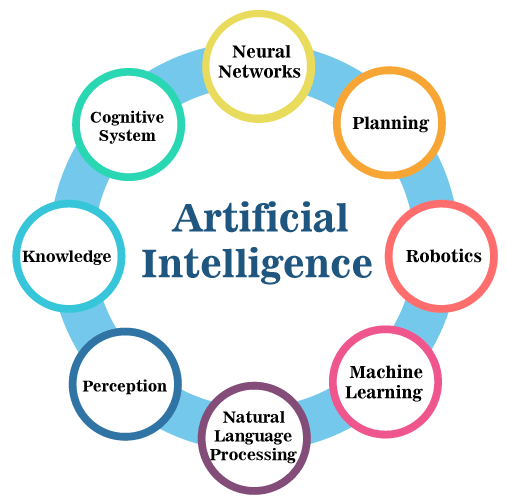Introduction to Nuclear Energy
Nuclear strength stands on the crossroads of innovation and way of life. As societies grapple with the urgent need for easy, sustainable electricity sources, this often misunderstood form of energy emerges as a massive participant inside the worldwide conversation about our future. With roots dating again to mid-20th century advancements, nuclear strength has evolved dramatically, promising each effective advantages and imparting extraordinary risks.
In an generation described by using climate trade concerns and dwindling fossil fuels, expertise nuclear power is extra essential than ever. What makes it any such compelling alternative? How does it stack up against different renewable sources? This exploration delves deep into the blessings that nuclear electricity gives even as also addressing its potential dangers. Join us on this journey thru reactors, policies, and innovative technologies shaping tomorrow’s power landscape.
Benefits of Nuclear Energy
Nuclear power offers a powerful solution to meet our growing demand for electricity. It produces more power from less fuel. This efficiency means that fewer resources are required compared to conventional fossil fuels.
A distinct advantage is the low carbon footprint associated with nuclear power generation. Unlike coal or gas, it does not emit harmful greenhouse gases during operation. This established nuclear power as central to efforts to combat climate change.
In addition, nuclear reactors can operate for long periods of time. They provide stable and reliable baseload energy, ensuring that cities never run out of energy even if renewable sources such as solar and wind are unavailable
The potential for employment in the industry cannot be ignored either. From engineering activities to jobs in power plants, nuclear energy supports local economies and spurs scientific and technological innovation.
The Risks of Nuclear Energy
The risks of nuclear strength frequently spark debate among experts and the general public alike. One major subject is the potential for catastrophic accidents, as seen in Chernobyl and Fukushima. Such events can have devastating consequences on human fitness and the environment.
Another chance entails radioactive waste control. The long-term storage of spent gas poses massive demanding situations. Ensuring that these substances continue to be contained for thousands of years requires advanced technology and cautious making plans.
Public belief additionally plays a crucial role in how nuclear strength is considered. Fear stemming from historical incidents can result in opposition towards new developments or existing facilities.
Additionally, there’s usually the hazard of terrorism concentrated on nuclear flora or materials. Security measures should be stringent to save you any malicious actions that could endanger lives.
These factors contribute to ongoing discussions approximately whether investing in nuclear electricity is worth it whilst balancing blessings against inherent risks.
Safety Measures and Regulations in the Industry
The nuclear electricity enterprise operates under strict safety measures and policies designed to defend each humans and the environment. Regulatory our bodies just like the Nuclear Regulatory Commission (NRC) in the United States make certain that strength plants adhere to rigorous requirements. These suggestions cowl everything from plant production to day by day operations.
Robust schooling programs for employees are essential. Workers undergo giant schooling on emergency protocols and radiation protection, making sure they’re organized for any state of affairs. Regular drills simulate ability incidents, instilling a way of life of readiness.
Additionally, generation performs a important position in maintaining safety. Advanced tracking structures come across anomalies early, allowing operators to reply rapidly. Moreover, reactors are engineered with more than one obstacles to incorporate radioactive substances.
Public transparency is also essential. Communities near nuclear facilities are knowledgeable approximately operational modifications and protection updates thru normal conversation channels, fostering believe between the enterprise and neighborhood residents.
The Role of Nuclear Energy in Combating Climate Change
Nuclear energy plays a pivotal role in the international attempt to combat weather trade. With growing temperatures and excessive weather activities, there’s an pressing need for stable and occasional-carbon strength sources.
Unlike fossil fuels, nuclear reactors produce minimal greenhouse gasoline emissions during operation. This method they are able to generate strength at the same time as extensively lowering our carbon footprint.
As countries try to meet their weather desires, integrating nuclear electricity into the combination gives a dependable opportunity. It offers base-load strength that complements intermittent renewables like solar and wind.
Moreover, advancements in reactor designs promise even greater efficiency and protection. Small modular reactors (SMRs), as an example, may be deployed extra flexibly than conventional flowers.
By harnessing this generation along other renewable alternatives, we will create a diverse strength portfolio geared toward sustainability even as addressing the urgent demanding situations posed through weather change.
Advancements in Nuclear Technology for a Safer and More Efficient Future
Recent improvements in nuclear generation are paving the manner for more secure and more green energy production. Innovations like small modular reactors (SMRs) provide flexibility in design and a discounted footprint, making it simpler to integrate them into current power grids.
These new structures make use of advanced protection capabilities that automatically shut down operations in the course of emergencies, minimizing human blunders. Moreover, more advantageous fuel cycle technologies are growing performance while lowering waste output notably.
Fusion research is also gaining momentum. While nonetheless in experimental ranges, fusion promises a clean energy supply with virtually endless gasoline from water and lithium. If a hit, this could revolutionize how we think about strength sustainability.
Digital gear and AI are being incorporated into tracking structures as nicely. This lets in real-time records evaluation for operational upgrades and risk management—making nuclear flora no longer handiest safer however smarter too.
Comparing Nuclear Energy with Other Sources of Clean Power
When comparing nuclear power with other smooth strength assets, awesome advantages emerge. Solar and wind are famous for their renewability, but they depend heavily on climate conditions. This intermittency can pose demanding situations to regular power supply.
Nuclear energy stands out for its ability to provide a constant base load of energy. It doesn’t fluctuate based totally on external factors like daylight or wind speed.
Hydropower is every other robust contender but regularly comes with ecological issues related to water drift affects and habitat disruption. Nuclear plants have a smaller land footprint as compared to large hydroelectric dams.
Furthermore, the carbon emissions related to nuclear electricity are notably decrease than fossil fuels and similar to many renewables during operation. When it comes all the way down to reliability and performance in producing power, nuclear gives unique benefits that merit attention alongside other clean options.
Conclusion
Nuclear power stands at a sizeable crossroad in the quest for sustainable and clean strength. As we face global demanding situations like climate change, the benefits of this energy supply become an increasing number of obvious. It offers a reliable alternative to fossil fuels, supplying huge amounts of energy with minimum greenhouse fuel emissions.
While issues approximately protection and nuclear waste persist, advancements are being made to beautify protection measures and regulations within the industry. Emerging technologies promise now not simplest more secure reactors however additionally greater efficient approaches to harness nuclear power without compromising environmental integrity.
When as compared with other sources of smooth energy—along with sun or wind—nuclear maintains to illustrate its capability as a regular issuer of huge-scale power generation. The combination of reliability, reduced carbon footprint, and advances in generation ought to role nuclear strength as an critical component in our future strength blend.
As society navigates via those complicated issues surrounding nuclear strength, it is important that knowledgeable discussions retain concerning its benefits and risks. Each step taken towards knowledge these dynamics can substantially influence how we method our collective journey in the direction of sustainability.





